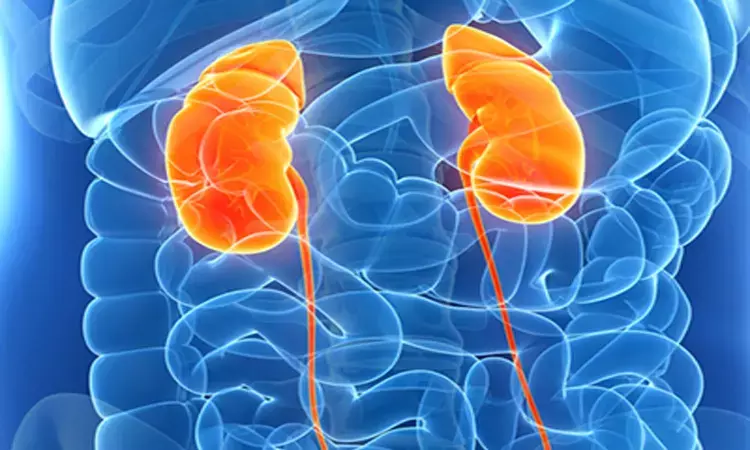- Home
- Medical news & Guidelines
- Anesthesiology
- Cardiology and CTVS
- Critical Care
- Dentistry
- Dermatology
- Diabetes and Endocrinology
- ENT
- Gastroenterology
- Medicine
- Nephrology
- Neurology
- Obstretics-Gynaecology
- Oncology
- Ophthalmology
- Orthopaedics
- Pediatrics-Neonatology
- Psychiatry
- Pulmonology
- Radiology
- Surgery
- Urology
- Laboratory Medicine
- Diet
- Nursing
- Paramedical
- Physiotherapy
- Health news
- Fact Check
- Bone Health Fact Check
- Brain Health Fact Check
- Cancer Related Fact Check
- Child Care Fact Check
- Dental and oral health fact check
- Diabetes and metabolic health fact check
- Diet and Nutrition Fact Check
- Eye and ENT Care Fact Check
- Fitness fact check
- Gut health fact check
- Heart health fact check
- Kidney health fact check
- Medical education fact check
- Men's health fact check
- Respiratory fact check
- Skin and hair care fact check
- Vaccine and Immunization fact check
- Women's health fact check
- AYUSH
- State News
- Andaman and Nicobar Islands
- Andhra Pradesh
- Arunachal Pradesh
- Assam
- Bihar
- Chandigarh
- Chattisgarh
- Dadra and Nagar Haveli
- Daman and Diu
- Delhi
- Goa
- Gujarat
- Haryana
- Himachal Pradesh
- Jammu & Kashmir
- Jharkhand
- Karnataka
- Kerala
- Ladakh
- Lakshadweep
- Madhya Pradesh
- Maharashtra
- Manipur
- Meghalaya
- Mizoram
- Nagaland
- Odisha
- Puducherry
- Punjab
- Rajasthan
- Sikkim
- Tamil Nadu
- Telangana
- Tripura
- Uttar Pradesh
- Uttrakhand
- West Bengal
- Medical Education
- Industry
Screening rates for hyperparathyroidism low among Kidney Stone patients: JAMA

In a recent study ,researchers have reported that only about 1 in 4 patients with kidney stones and hypercalcemia were screened for primary hyperparathyroidism .
The research carried out by Dr Calyani Ganesan and associates from Stanford University School of Medicine, California has been published in the prestigious JAMA Surgery.
Primary hyperparathyroidism (PHPT), a hormonal disbalance of the parathyroid hormones, is regarded to be a common cause of recurrent kidney stones. Approximately 3% to 5% of patients with kidney stones have primary hyperparathyroidism (PHPT). Unlike most stone formers, those with PHPT have a good chance at permanent cure. This makes detection of PHPT a paramount aim for patients and their physicians. But the screening and detection rates for PHPT in patients suffering from recurrent bouts of kidney stones have been found to be inconsistent.
The goal of the present study was to estimate the prevalence of parathyroid hormone (PTH) testing in veterans with kidney stones and hypercalcemia keeping in mind the demographic, geographic, and clinical characteristics of veterans who were more or less likely to receive PTH testing.
The study sample consisted of records of 7561 patients (mostly men) in the Veterans Health Administration system who were diagnosed with kidney stones and hypercalcemia.
The key findings of the study were-
- A small proportion of patients had completed a serum PTH level measurement which was 24.8% (1873 of 7561).
- Inconsistent rates of testing in various health facilities ranging from 4% to 57%
- Testing rates were significantly higher among patients with measured hypercalcemia (35%) versus albumin-corrected hypercalcemia (14%) and when patients were treated by specialists. Significant factors associated with PTH testing included the magnitude of calcium concentration elevation (odds ratio [OR], 1.07 per 0.1 mg/dL >10.5 mg/dL; 95% CI, 1.05-1.08) , the number of elevated serum calcium concentration measurements (OR, 1.08 per measurement >10.5 mg/dL; 95% CI, 1.06-1.10) .
- Of the 717 patients with biochemical evidence of PHPT, 189 (26.4%) underwent parathyroidectomy within 2 years of a stone diagnosis.
Based on these findings, the researchers concluded that there has been a trend of under diagnosis of primary Hyperparathyroidism due to low screening rates. Increased awareness of clinicians, especially general practitioners to PHPT screening may improve evaluation for parathyroidectomy, increase the rates of detection and treatment of PHPT, thus decreasing recurrent kidney stone disease.
Primary Source- JAMA Surgery article
Dr Satabdi Saha (BDS, MDS) is a practicing pediatric dentist with a keen interest in new medical researches and updates. She has completed her BDS from North Bengal Dental College ,Darjeeling. Then she went on to secure an ALL INDIA NEET PG rank and completed her MDS from the first dental college in the country – Dr R. Ahmed Dental College and Hospital. She is currently attached to The Marwari Relief Society Hospital as a consultant along with private practice of 2 years. She has published scientific papers in national and international journals. Her strong passion of sharing knowledge with the medical fraternity has motivated her to be a part of Medical Dialogues.
Dr Kamal Kant Kohli-MBBS, DTCD- a chest specialist with more than 30 years of practice and a flair for writing clinical articles, Dr Kamal Kant Kohli joined Medical Dialogues as a Chief Editor of Medical News. Besides writing articles, as an editor, he proofreads and verifies all the medical content published on Medical Dialogues including those coming from journals, studies,medical conferences,guidelines etc. Email: drkohli@medicaldialogues.in. Contact no. 011-43720751


